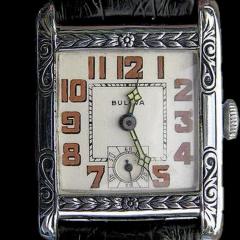Mainspring lubrication, manual and automatic
-
Recently Browsing
- No registered users viewing this page.
-
Topics
-
Posts
-
By Neverenoughwatches · Posted
Its 4 o'clock in the morning here in the Uk, i cant sleep, i dont sleep, not much ever really. My brain never shuts off to rest, I'm just a constant thinker, i have to be very tired to be able to sleep, i guess eventually it will be my undoing and my health will suffer because of it I'm sure. But while I'm here i want to get as much out of life as i can, and give as much as i can, to help,maybe to make a difference to someone's life if that is within my capability,recent events have made that need even more clear to me. I'm not sure where I'm going with this or why i bring it up , or if its relevant to want i want to talk about its just in my head right now. What i do want to talk about is something thats been on my mind for ages. I like to be prepared, I'm not fond of surprises because surprises take control away and i am a bit of a control freak at times. This forum, Our Forum if i can call it that, is here because of two reasons. The guy that created it and keeps it funded and the people that joined it. Without either, it would not exist, and lets face it one day it won't ( I'm a realist and i talk about things others dont or who are afraid to in other words folk that dont particularly prepare for the inevitable). How many of us visit here regularly ? How many among us almost depend on the forum as a way of socialising because they are stuck at home and how many of us has it become part of a daily routine to check in and see if they can offer advice or get help with something they are working on or just to have a chat and engage in some banter. The members here are in the thousands and thousands have disappeared over the years many had just a fleeting visit. But there are a good few of us that know each other quite well and visit regularly. I dont know about you but i wouldnt want to lose that communication with you all, in all honesty it has become an important part of that side of my life and helps to feed my passion for all things watches. Some of you may think differently and thats ok, some of may stop and think # what would i do " Without Our Forum " # -
By Neverenoughwatches · Posted
Naptha appears to be a general name and its content can be varied depending upon what it's specific use is. Lighter fluid as an example can be light or heavier also with other ingredients to help it burn. Try sesrching for benzine ( as opposed to benzene which is linked to causing health issues ) . There are other fluids such as ethanol that you could try and also methylated sprirts, mostly ethanol with a small percentage of methanol added. Experiment with any new chemical to see how quickly schellac dissolves in its presence. I have tried a few things but hexane is not one of them, i understand it does evaporate very quickly. Be sure sure to check out any safety data on chemicals you try. Toxicity of fumes and flash point information, ultrasonic machines can heat up fluids even without a heater function. And of course always ask here for personal opinions when trying a new substance. -
I have that set and really like it. I prefer that crystal holder over the one that came with my Bergeon claw tool and any time I use the claw I use this one instead of the Bergeon one, just an additional bonus with this tool.
-
Is the Roamer not a split stem? I'm confused on your how your case is put together. If it is a front loader where is it you are putting the case screws? I love me some Roamer, do you have any photos?
-
By ManSkirtBrew · Posted
Oh nice. I have a similar wedge style stump for my staking tool, so I'll give that a shot. Thanks!
-






Recommended Posts
Join the conversation
You can post now and register later. If you have an account, sign in now to post with your account.
Note: Your post will require moderator approval before it will be visible.